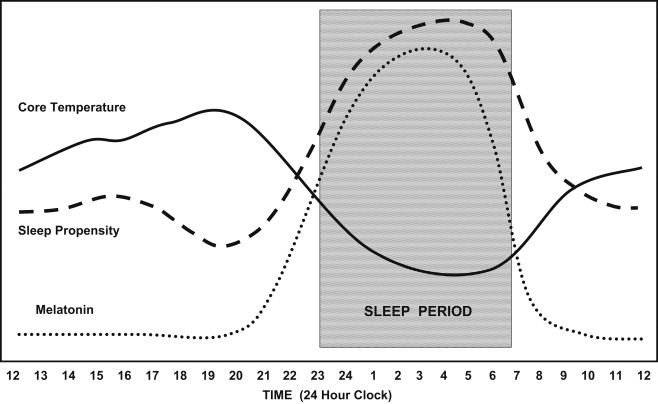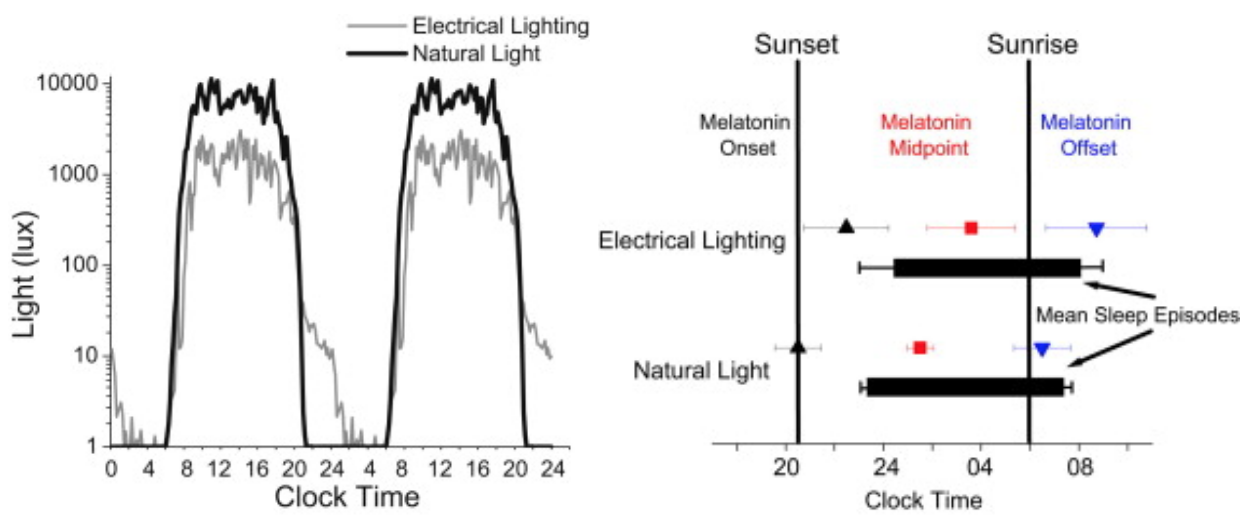The importance of morning sunlight for better sleep
If you’ve been having trouble sleeping, the solution might be in a place you least expect: the morning sun. Morning sunlight, how much and when you get it, actually has a significant impact on your sleep. It may sound counterintuitive, considering we sleep at night in the darkness, but it’s true.
Keep reading to understand why this connection makes sense. We’ll explain how morning sunlight can improve your sleep, and the best way to go about getting more of it.
Why is morning sunlight so good for your sleep?
The short answer is this: morning sunlight reinforces your natural circadian rhythms.
Now, for the longer answer. Your body’s circadian system dictates many of your biological processes, including your appetite, energy levels, hormone production, and body temperature. As humans, we are diurnal creatures, so our circadian rhythms revolve around the patterns of the sun. The word “circadian” comes from the Latin words “circa” and “dies,” meaning “around day.”
When it comes to sleep, here are the key details you need to understand around light and your circadian rhythms. Throughout the day, you experience slight fluctuations in your core body temperature. Your body reaches its coolest point in the early morning, before waking up. As your body prepares you to wake up, cortisol gets released, energizing your body and warming up your core body temperature. Your temperature reaches its highest point during the day, before it begins to fall again in the evening, signaling to your brain that it’s time to start falling asleep.
If you look at the chart below, you’ll notice that these temperature changes mimic the rise and fall of sunlight. After sunset, our bodies begin to cool, kicking off melatonin production and preparing for sleep. Melatonin is the hormone that regulates your sleep. Around sunrise, they do the opposite, decreasing melatonin and increasing our core body temperature.

Unfortunately, in today’s modern world, we are constantly exposed to bright light. We live in artificial lighting with our smartphones, tablets, and laptops close to our faces. Because these tech devices emit bright blue light right into our eyes, they seriously interfere with our circadian rhythms. Our brain misinterprets the light as sunlight. If, like most people, you use these devices at night, they’re actually encouraging your brain to keep you up at a time when, ironically, you may be using them to “wind down.”
It’s no wonder 20% of Americans suffer from insomnia. Artificial lighting is so disruptive to sleep that researchers have charted the delays it causes to our circadian cycles and melatonin production:

Fortunately, you can counteract the effects of artificial lighting. At night, wear blue-light blocking glasses when you use your tech devices. In the morning, reinforce your natural circadian rhythms with exposure to morning sunlight.
How morning sunlight benefits your sleep and health
While we think of the sun as yellow, the light it emits is full-spectrum light. It includes those same bright blue wavelengths of light your technical devices have, but in a much more powerful form. By exposing your eyes to this bright light early in the morning, you signal to your brain that it’s time to suppress melatonin production.
In response, your brain will increase cortisol production. Cortisol and melatonin operate indirectly to each other. Cortisol is popularly known your stress hormone. While too-high levels of cortisol can be dangerous, in healthy amounts cortisol is good for you. This activating hormone energizes your body and prepares you to meet the day.
Besides light, the sun also emits a lot of warmth. Morning sunlight can warm your body up, facilitating your natural thermoregulation process and aiding cortisol production.
Finally, sunlight affects yet another hormone related to sleep. Greater exposure to sunlight is associated with a release in serotonin. Serotonin plays an important role in melatonin production, as your pineal gland metabolizes serotonin into melatonin.
Serotonin is also known as the “happy” hormone for its ability to lift mood. In fact, sunlight has such an effect on your mood, that specialized light therapy lamps are used to treat people with seasonal depression and related sleep disorders. These lamps are designed to mimic natural sunlight, without the harmful UV rays.
Morning sunlight provides other health benefits besides sleep. Most popularly, it boosts your vitamin D production, which keeps your immune system healthy and happy. Healthy amounts of sunlight are also associated with stronger bones and cancer prevention.
How to get the best morning sunlight for better sleep
Now that you’re motivated to get more morning sunlight, how do you go about doing it?
Within an hour of waking up, get outside and meet the sun. Wear sunscreen to protect your skin, but don’t wear sunglasses or a hat, as you don’t want to block the sunlight from your eyes. Spend 30 to 45 minutes outside. If possible, pair your morning sun time with exercise for an extra energy boost.
Even if it’s overcast outside, don’t worry: you’ll still get the benefits of morning sunlight.
If you need help getting out of bed in the first place, get yourself a wake-up light alarm clock. These fill your room with bright light, making you excited to go out and experience the real thing. Then get outside. To wake up feeling energized, you need your dose of morning sunlight.